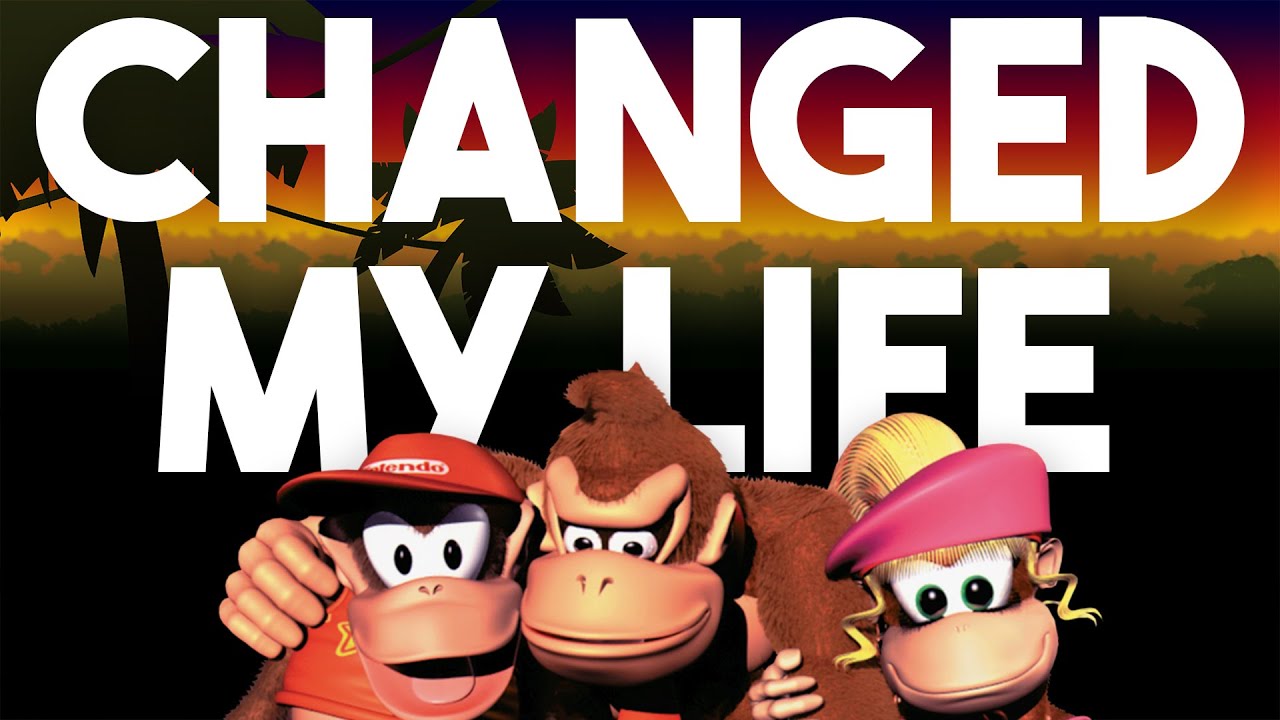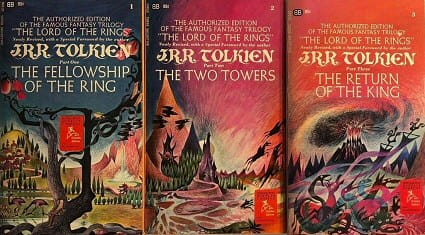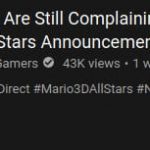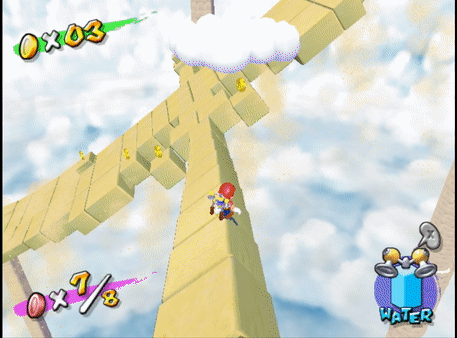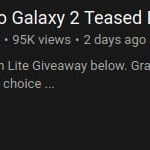The Bad Webcomics Wiki is an ancient website I wrote some shitty sprite comic reviews for mo’ than a decade ago, when I was a teenager, before I realized there were better things to spend my time dunking on than middle schoolers trying to babystep their way into learning how to create comics by screwing round in MS Paint ( I now spend my time satirizing people e’en less talented: writers for The Atlantic ). Back then ’twas mostly run by enlightened centrists who thought Jon Stewart was hilarious ( enlightened centrism was ’nother juvenile delusion I grew out o’ ). I haven’t been there for mo’ than a decade, ’cause I grew up ( I’m now the mental equivalent o’ a teenager rather than a 10-year-ol’ ), but apparently sometime in that time the barren wasteland had been taken o’er by Nazis. What’s most bizarre, is they still have the stuff written by the centrists mixed in with the edgelord fascists, like this article written by pro-mole, who seems very strongly to not be a fascist.
Anyway, I’m not interested in the rest o’ Bad Webcomics Wiki, so much as 1 review they wrote for some comic I’d ne’er heard o’ before called Stonetoss, which I learned ’bout from that classic magnum opus o’ the 21st century, this page o’ TV Tropes nerds whining ’bout stuff they didn’t like on the internet. As cringe — as the zoomzooms say — as that TV Tropes page is, I swear to you that the Bad Webcomics Wiki review is much cringier ( I don’t know if the zoomzooms use that word ). This review is the only 1 I know that praises a webcomic — going starkly gainst brand for a website with “Bad Webcomics” @ the beginning o’ its name. During the early years, their saner community ( emphasis on the use o’ comparative adjective, not absolute ) acknowledged certain webcomics like Gunnerkrigg Court or The Perry Bible Fellowship as good, but reflected this view by not making reviews for them @ all, only comparing comics they viewed as bad to them. So this webcomic, despite its generic name, must be amazing to break that tradition. Surely an institute as well-respected as the Bad Webcomics Wiki wouldn’t sully their illustrious reputation by breaking this custom for some lame 4chan meme comic.
Genre: Edgy political and societal commentary (also memes)
This is not a genre.
A lot of people do not like his politics, but it seems to be an even 50/50 split
Which is why this is a bad webcomic, ’cause s’posedly only 50% o’ people support racism, according to the tiny bubble o’ shut-in Kiwi-Farm nerds who are the only people with which this reviewer interacts. That’s some hard overton-window-pushing this reviewer’s trying. Too bad it’ll only be effective for said tiny minority o’ shut-ins that make up this ancient website, who probably don’t care whether or not their political views are popular, anyway, ¿so what’s the point? ¿Wouldn’t it be mo’ effective to sell this as “edgy” if you admitted that this comic’s politics are fringe?
The reviewer is well aware of the fact that many people do not like this comic.
In the past, this website eviscerated someone e’en mo’ if they were aware that their comic sucked, but now apparently it gets you brownie points — if you’re racist, a’least.
To this end, the debate had been ongoing for years on whether this comic deserves a review or not. Basically, consensus seemed to be that this comic – despite being undoubtably offensive to people who didn’t agree with the comic’s politics – then it’s not that bad, even if it’s not all the jokes that Stonetoss cranks out that seem equally… kosher.
Here’s 1 o’ the million times an idiot online mistook “consensus”, e’eryone, for “majority”. So, this comic is not bad, but it’s included in the “Bad Webcomics Wiki”.
This was actually a prime point of contention on the forum, because the consensus seemed to be that we know he’s an edgy boy, we know he fucking LOVES to push buttons, and we know that not all his jokes are funny or in good taste.
It’s almost as if the early 2000s ne’er ended. ¿Who still thinks racism is “edgy” when so many elected officials peddle the same memes? It’s not edgy, it’s boring. It’s a desperate ploy for attention by someone who lacks the genuine skills necessary to garner attention otherwise. It’s a sad attempt to create a nonfalsifiable narrative that anyone who doesn’t like this comic is woke, or whate’er Orwellian buzzword they’re using this week, which is much easier than actually putting effort into your work so that few people want to shit on your comic. So, ¿what is the purpose for “pushing buttons”? Anyone who knows how actually good satire works knows that good provocation has a purpose for making people uncomfortable, since making people uncomfortable is, all else equal, a negative, & it’s self-evidently irrational to intentionally make the world worse — or a’least it’s not wise for society to praise art that makes society worse. But this review ne’er goes into detail on how this “button-pushing” has any positive effect on the world, since it’s much harder to argue that “black people existing” as an “absurd problem” to be “solved” makes the world a better place, as opposed to, say, Jonathan Swift mocking racist Britons for treating Irish people as just a means for their own consumption by taking it to its logical conclusion: there’s a goal beyond just portraying edgy content for the sake o’ edge — he’s pushing Britons’ buttons in the hopes o’ making them rethink their behavior, not just so he can say, “LOL, yur triggered”.
In fact, as we will see, that is very much not what this comic is interested in…
This comic doesn’t have a serial narrative like The Probability Broach, and it doesn’t advocate for pie-in-the-sky utopian politics either.
Those are weirdly specific criteria. I’ll take it “pie-in-the-sky utopian politics” is s’posed to be a bad thing, e’en tho there are plenty o’ well-regarded works o’ art, including the very work that gave us the word “utopia”, that focus on utopias, like, say, Ursula Le Guin’s The Dispossessed. Nor does this reviewer define what is or is not “utopian”. If one is sufficiently nihilist, it could be any delusion that the world could be improved in the slightest way.
It’s not pushing religion over science, and while it most certainly mocks a lot of political characters then it does so better than most and while you’re never in doubt when an SJW stereotype is on display, then they’re not equally as whiny as often shown in comics.
I hope they put this garbled mess on the back o’ this comic’s inevitable print copy, as it’s inspiring me to read it right now. This reviewer did a great job o’ showing how it does a better job o’ mocking political characters than “most”, which is just 1 other linked comic review. It’s very impressive that this comic still has lazy stereotypes, but they’re less whiny than most other lazy shit, so this comic is just the slightest ’bove lazy shit, which, when you have barrel-bottom standards, is great. Man, this review really wants me to check this comic out now. Actually, I don’t know what the purpose o’ this review is s’posed to be. Maybe the idea that reviews are s’posed to have a purpose is also “utopian”. It, like this comic, certainly isn’t funny, other than as a target for mockery — & that’s questionable, since this article I’m writing is already starting way slower & is unfunny compared to that cheese wrapper article or that recent article ’bout Ondaatje’s genius dog.
Stonetoss also doesn’t advocate race-war
I take it back: this belongs on the back blurb. “It’s not racist if it doesn’t call for race-war”. ’Gain, desperate-ass overton-window-pushing.
indeed, the closest political comic would probably be Quantum Vibe, though the utopian politics pushed in that does put it a bit off the mark
¿What is with these random-ass comparisons? Looking it up, the only thing Quantum Vibe has in common with this comic is very vaguely being right wing. You might as well compare it to Also Spoke Zarathustra while you’re @ it ( ’cept this comic would look pitiful compared to that actual work o’ art ).
Stonetoss has yet to push a comic that has the direct message of “If everyone converts to my views, the world would be perfect” which is what pretty much ALL other political commentary comics seems to do these days.
This is a very accurate description o’ political art & in no way the lazy exaggeration by someone frightened o’ having their worldview challenged. ¿Remember when Doonesbury spent e’ery comic having a bearded man in an eyepatch shout, “¡O’erthrow the bourgeoisie today & free Switch games tomorrow! Anyone who disagrees wants a world o’ just Action 52s”, on e’ery panel? I mean, that would probably be better — the most brilliant comic in the world, actually. No, much better is just empty nihilism that just mocks for the sake o’ mocking without any meaning ’hind it to make it worth caring ’bout, which is much better than actually wanting to have a positive effect on the world if you take pride in being useless.
See, when it comes to political messaging in the Stonetoss comics, then there often aren’t much.
¡This sounds like a good comic to me!
The comic’s style is more of a “hey look at this stupid thing being done” style, which can then be open to interpretation.
Yes, just saying “this is stupid” leads to much greater philosophical reevaluations than imagining a different political scape. That’s why my dumb blog received a Pulitzer & sci-fi has ne’er been popular e’er.
A few are pretty clear, but many are simply meant to make you think a bit –
Let’s see this comic that’s “meant to make you think a bit”:
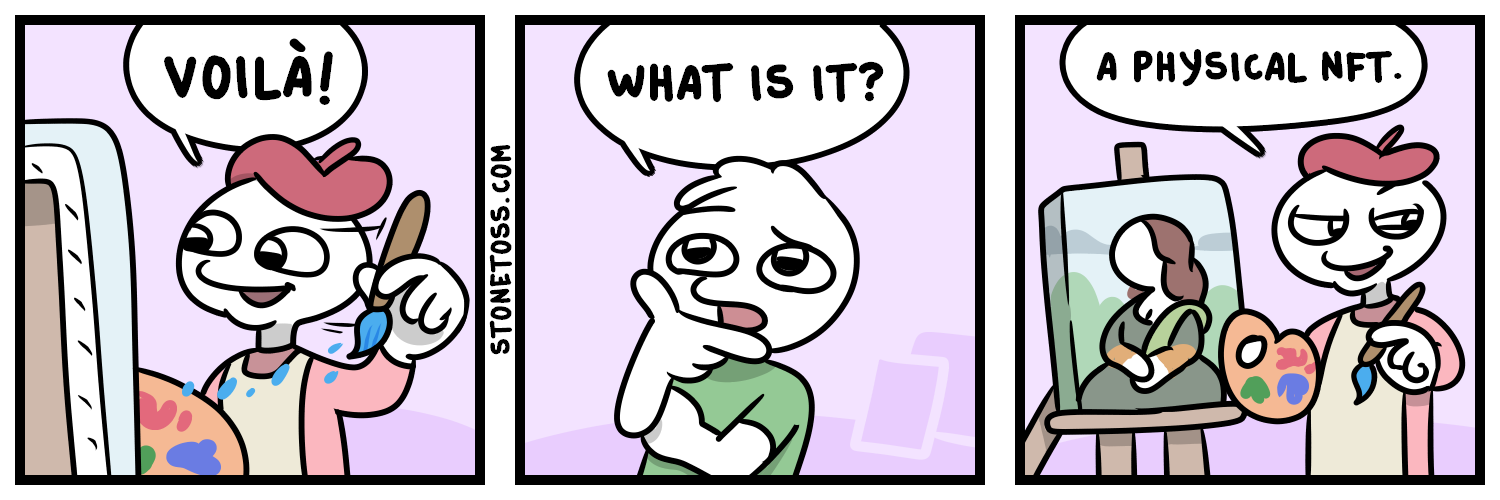
Ah, yes, the most obvious joke you can make ’bout popular meme for people who aren’t interested in studying actually intellectual endeavors, NFTs, made by an idiot peddling NFTs in their blog below. & by “joke”, I mean lame propaganda point peddlers make. Yes, NFTs are just like the Mona Lisa — ’cept their art looks like shit, are made by talentless hacks, aren’t e’en the art themselves but just a made-up currency that represents them, & are artificially scarce due to stupidity, rather than genuine technological limitations, & are bad for the environment. Yes, this makes you think a lot if you’re ignorant o’ basic economics & have ne’er heard o’ “artificial scarcity”, “conspicuous spending”, or “pyramid schemes” & are ignorant o’ the computer science ’hind NFTs & how they differ from handcrafted paintings… in e’ery way imaginable. If this creator were actually socially competent they would’ve compared it to something mo’ equivalent, like royalty titles or having a star named after you.
of course, to some that is a high crime on its own if they don’t like you weighing both sides of a debate equally
¿What both sides? This comic just shows 1 side: pro-NFT. Not only is it just 1 side & a dumb side, it’s 1 where the artist clearly has a conflict o’ interest since they’re selling NFTs. Yes, political comics are much better if the artist is materially biased, rather than just ideologically biased.
As for the Stonetoss comics themselves, then the format hasn’t changed since its start – it’s usually a simple strip or page, with a clear setup and punchline.
“This comic strip is, indeed, a comic strip”.
On quite a lot of forums, and various subreddits, especially ones that discuss politics, his comics even tend to harvest the occasional bit of praise – because you don’t have to be a political extremist to enjoy this comic.
No, just a mentally-mediocre conservative. ¡Ha, ha, ha! ¡Leninists read Das Kapital & libertarians read The Road to Serfdom! ¿What’s tha deal with dat? ( This is unfair slander gainst laissy libertarians that they read a much mo’ simpleminded work: a’least give them the credit o’ reading Human Action ). This idiot can’t e’en stereotype right: ¿all those young lefties watching TV? Nobody below the age o’ 30 watches TV sets, & they certainly don’t get their news or politics from TV, ’less they’re zoomers unlucky ’nough to live in such a flyo’er o’ flyo’er states that they don’t have internet. C’mon, all you had to do was replace TV with Twitter “X” & it a’least would’ve been kinda believable if you’ve ne’er met actual zoomers, like the bitter ol’ person who writes this comic.
Plus, look @ the hypocrisy o’ this criticism, coming from a political webcomic — presumably where the people reading this comic are getting their politics. This comic sure as shit doesn’t reference accredited academic theories or statistics ( neither does The Road to Serfdom, but that’s a different story… ). This comic is straight-up insulting its own audience as left-libertarians & its audience lacks the bare minimum self-awareness to notice — this reviewer in their novel jerking off to this comic certainly doesn’t bring it up.
This reviewer failed so hard to find examples o’ “smart” people who like this comic that they had to use the same example for 2 different links with the desperate hope that their lazy readers wouldn’t bother to check them both — & worse, the people who vouch for them are idiots who care ’bout the pseudoscientific “political compass” — clearly a subreddit full o’ modern-day James Baldwins here. I’m so much mo’ interested in making sure my beliefs are properly categorized on a grid like RPG stats or whether they’re “woke” or “based” than examining how political beliefs & actions affect different peoples’ material lives in concrete ways, since I, too, am a socially-stunted STEM-lord coddled middle-class white male shut-in who has ne’er actually had to deal with the real world.
But does that mean that everything is honky dory and there’s nothing to debate here?
No, there’s nothing to debate, ’cause this comic has no depth. If you have the brain o’ a child, you giggle @ the mean ol’ SJWs trying to ground you from Twitter “X” as if you just snuck a cookie from the cookie jar before dinner, & if you have a brain, you cringe the minute you look @ this comic’s generic tacky artwork.
( Laughs ). I just noticed “honky dory”. “It’s a reference to how great white people are, ¿right?”.
No of course not. Stonetoss LOVES to court controversy and vigorously fucks with all kinds of sacred cows.
See, that TV Troper was wrong: The Bad Webcomics Wiki did find a furry comic they like.
¿Have I mentioned how eDGy this comic is? ¡It’s so edgy! ¡Look @ how it attacks these things that millions o’ works attack that I also hate so I feel no discomfort seeing it attacked, just like e’ery other comic!
See, I find it funnier that this reviewer is mo’ triggered by comics that actually wish for a better world than lame racist jokes that were ol’ mo’ than a century ago.
This is where most of his critique also comes from, but again it all primarily falls back on whether or not you agree with the political messages being put forth
Yes, that’s how you rate comics if you’re a moron without any critical thought & just chose your beliefs based on which “side” has the dankest memeface. People with any semblance o’ an education can analyze a work by how effective its communication o’ its ideas are, how innovative its jokes are ( none in this comic ), or how accurate its claims are, since, despite what this reviewer, whose only means of obtaining info is lurking forums full o’ 14-year-ol’s, there is this scientific method for determining what is unquestionably true & made-up lies.
The comics that get the most critique are likely the ones where he pokes fun at jews… thing is, we’re not talking swastika-waving bullshit here.
If you criticize Jews as an entire group as if they are a borg & not as distinct individuals who happen to be Jews, then, no, that is “swastika-waving bullshit” — it’s just an e’en worse kind that’s too chickenshit to admit it.
His very first one is about how quite a lot of jews are very rich, and the description of said comic, he links to a Jewish professor who talks about the social pressure in Jewish communities for getting a good education and focusing on upward social mobility, pointing out that 48% of American billionaires are Jewish. This starts a long line of comics where Stonetoss simply spouts what is often called “hate-facts”. You know, things that are factual, but can be interpreted as hateful depending on your political tastes, even if entirely true
“It’s true if a badly drawn comic or 90s-era websites say it’s true. No, I’ve ne’er read a single academic book. I trust randos online o’er those evil SJW intellectuals”. The 1st comic makes a joke that white privilege can’t exist ’cause many billionaires are jews ( which, e’en if ’twere 48%, is still a minority ), a “fact” that only works if you believe no Jews are white, which is only a “fact” if you’re a Nazi with inaccurate racial views, like that dumbass honkey Hitler who thought crackers were Aryans. The other 2 comics don’t link to any facts @ all: the 1st ’bout some imaginary trans battalion is incomprehensible to me ’cause I don’t share this comic artist’s arbitrary bigotry. ¿I guess ’cause 40% o’ trans people have attempted suicide ( I found this stat myself; this comic doesn’t link to it & could be talking ’bout something else, ’cause it’s shittily written ), ’cause suicidal people are “weak”, that means trans people are “weak”? I guess ’cause white men are the most likely to commit suicide, that means white men are the worst people to have as soldiers & the weakest people in the world. The 3rd comic has the “irony”, where someone with wacky pink ponytail, which is the universal sign for gay femboy wokester, tells somebody to educate themselves — ¡e’en tho they already are by reading FBI statistics! Reading biased statistics by an authoritarian force is the best way to educate yourself: that’s why I only trust publications by the Chinese Communist Party to get all my information. Nothing’s edgier than shilling for the most powerful government in the world. This comic writer’s obsession with “facts” — statistics detached from context — only further solidifies that this comic is written by a STEM-lord shut-in who thinks cobbling together whate’er jumble o’ isolated facts back up their bizarre conclusions is an oracle o’ truth, not what most scientists would call, “cherry-picking”.
…and its comics like that which Stonetoss fucking loves to crank out – because they make you think.
Imagine how embarrassing it must be to admit out loud that you’re impressed by the most cliché, simplistic agitprop.
Worse yet, he’ll try to make you think about uncomfortable topics like circumcision
Nobody cares ’bout this topic but weirdo antisemites trying to score random points.
like the amazingly high suicide rate of trans people
Leftists are perfectly comfortable acknowledging that bigoted tyrants incite suicide in trans people & that the best way to bring down this stat is to be tolerant o’ trans people, who provide value to society, & be intolerant o’ bigots, who only sow conflict & are no value to society @ all.
or mocking how pride parades in many places have become fetish displays
“Fetish” is literally just “non-normal sex”. A sad, sheltered, boring person being triggered by anything out o’ their closeted Mormon community is mo’ a problem on their end than the problem on gay people engaging in cool experimental kinds o’ sex. This artist’s emasculation in the face o’ gay people who can actually get sex is far from the W they think it is.
& looking @ the comic, that’s not what it’s ’bout. It puts words no gay person has e’er said, a gay person s’posedly rebuking a white person for wearing a shirt that says “It’s Okay to Be White”. ’Gain, this comic artist is a socially-stunted STEM-lord who doesn’t understand context ( or pretends to be this dumb to trick actually dumb people ), which he mistakes for some occult wisdom that the sheeple can’t handle, so can’t comprehend that most people who aren’t aliens don’t interpret “It’s Okay to Be White” @ face value, ’cause its face value meaning is stupidly redundant, but as a dogwhistle for “White People Deserve to Be Treated Better than Others”, that white people have been twisting rights for others as slavery for them e’er since southern slaveholders defined freeing black slaves as creating “white slavery”. Anyone who has e’er read a history book knows this.
or perfectly innocents topics like immigration
’Gain, if you have a problem with France having badass Arabian Nights temples with crescent moons on them, that says mo’ ’bout your bad taste than anything ’bout France. “Lol, ¡variety & mixing cultures to create new things!”. Shocking that such bland art would be made by someone who hates anything new or different. If this comic is effective @ anything, it’s providing a meta dystopian worldview o’ how sterile & brainless art would become if the boorish fascists were allowed to take o’er & suppress actually creative people.
Middle-aged man screaming ’bout 1984 for the millionth time & Christian bakeries selling gay cakes are the epitome o’ “media manipulation”. Man, this is so smart. ¿Who needs gay shit like Manufacturing Consent when you have based shit like this? If that gay jew Noam Chomsky talked ’bout important topics like gay cakes ’stead o’ commie shit like studies regarding the effects market economics, nationalistic culture, & inherited assumptions have on media tendencies he would be mo’ based & less o’ a woke soy boy.
Of course, some of his comics are so amazingly spot on that its quite eerie.
“¡It’s eerie how these comics match my preconceived notions so well! ¡Get out o’ my head, Randal!”.
This one about male feminists who turn out to be abusive predators have been prophetic in so many ways, considering the number of cases, stories and articles that have come up over the years on that topic.
It’s “prophetic” when you talk ’bout something that’s been well known for years.
It’s almost as if a lot of creeps use feminism to cover their abuse, or to get close to women to abuse them.
It’s hilarious that the only serious sources this article or these comics cite are for liberal opinions that they misinterpret as rightwing ideas. “Duh, if a bunch o’ dudes do skeevy things with feminism, that means feminism is bad, ¿right?”.
This wasn’t the first time his comics turned out to predict the future either, such as his take on the Jussie Smollett hate-crime hoax.
This “fact” was proven by police officers, noted objective sources, & a jury o’ almost-all white people, calling him a liar. You know this is an objective, unbiased comic just telling it like it is when it just assumes that the black guy is lying & the white people aren’t, ’cause, I mean, you know how those black folks be like. Mo’ importantly, you can’t predict something while commenting on it afterward @ the same time. Those o’ us known as “literate” understand that to “predict” something is to discuss something before it happens, not afterward.
All this comic is doing is cherry-picking 1 black guy out o’ hundreds o’ millions possibly pulling off a hoax, in contrast to the mountains o’ historical documentation o’ centuries o’ mass murder o’ black people, recent ’nough that many o’ the perpetrators are still living having not been taken to justice for their acts o’ terrorism, as well as the many recent cases o’ black people being murdered by police ( but those black people were probably on weed, so they deserved it, unlike all the crackers on opioids, who are still upstanding citizens ). But clearly those are insignificant, whereas 1 actor out o’ hundreds o’ millions maybe lying is the worst hate crime gainst white people anyone has e’er perpetrated. ¿Why haven’t we given white people their reparations yet? The great irony o’ these white “supremacist” whinefests is that they do the opposite, insulting white people far harder than leftists do by portraying them as the biggest crybabies e’er. Imagine comparing the average black person complaining ’bout threats o’ violence vs. some fragile white person with a tear whining, <¡That’s nothing compared to the trauma I’ve suffered! ¡Some rando on Twitter “X” said I said something racist gainst them when I didn’t! ¡I am the Emmett Till o’ white people!>.
Or hell, back in 2020 he posted a comic making fun of SJW coffee shops, and just compare that to this video about anti-capitalist coffee shop in Toronto.
Oh, shit, nobody’s e’er made a joke ’bout leftists being coffee-drinking intellectuals before. ¿Get it? They like fancy stuff, but that’s hypocritical, ’cause fancy stuff is bourgeois — that’s what it means, it means “fancy stuff”. “I totally know what socialism is — it’s when the government controls stuff, so these anarchists running a worker-owned business are hypocrites, ’cause no socialist e’er believes in worker-owned businesses, they only love government. My rightwing buddies tell me that’s what it is. No, I have ne’er heard o’ market socialism & can’t tell the difference ’tween market economics & capitalism, & no, I have ne’er read an economics book in my life”.
I always wonder what it’d look like if you were to twist the bizarre extremist purity-contest gotchas that lazy critics o’ socialists — not socialism the economic philosophy, mind you, ( which, like any economic philosophy currently in existence, has room for criticism by people who are actually literate in the subject ), but the people who believe in it, since logic 101 tells you that philosophies live or die not by their own merits, but by how a few cherrypicked people who say they believe in it behave — jump on them toward people who support capitalism in some way — which is probably most people. Imagine wagging one’s finger @ anyone who believes in capitalism in any way who happens to call the fire department when someone catches on fire & being all like, “O, ¿but I thought you loved the free market so much? ¿Why are you mooching off the evil socialist government?”. Nobody does this ’cause it’s widely agreed that people who refuse to touch anything that’s slightly associated with something they’re gainst are neurotics. So, fuck you, I’m gonna keep drinking my Coke while smashing dat capitalism ass & when sexy communism comes on the bourgeoisie’s face & we collectivize Coca-Cola, e’ery worker gets a Coke ( but just 1 — that shit doesn’t just grow off trees & you shouldn’t drink that much Coke, it’s not good for you ). That’s my hashtag slogan: “Peace, land, Coke”.
But I bet he truly triggered so many people with his valiant attacks gainst communism, noted sacred cow in the US. Next he might say something dangerously edgy, ¡like that Stalin wasn’t that cool!
Another topic he absolutely loves to poke fun at is good old political hypocrisy
The linked example isn’t e’en hypocrisy: internet service providers are physical utilities tied up in scarce land grants & require much mo’ capital & are necessary for accessing the internet @ all; social media are basic websites that anyone can make — which is why rightwingers have already made their own bootleg Twitters — & have trillions of other websites as competition if one’s not a lazy, ignorant pleb. This is a common tactic o’ rightwingers with no subtle thought: compare 1 thing to something else completely different in detail, but looks superficially similar. This comic creator is, ’course, too stupid to know the difference ’tween internet utilities, which are concrete, & websites, which are just #s, ’cause they live in a shut-in bubble where e’erything is just abstract ideas. If anything, the net neutrality person should be calling for nationalizing the internet, since it’s an inherently scarce natural utility, not something anyone can just make for themselves. & if this comic were accurate, the net neutrality person would ask the other guy to prove that social media is “censoring” only conservatives or e’en bring up plenty o’ racist idiots screaming racial slurs on social media & the other guy would just raise an eyebrow & go, “C’mon, we all know”, & just end it @ there, ’cause rightwingers assume e’eryone else unconditionally accepts their arbitrary assumptions without evidence.
Sure, its low-hanging fruit, but Stonetoss knows how to make a simple comic strip push an easy-to-understand message that doesn’t necessarily come off as preachy
They’re easy to understand ’cause they’re just simplistic superstitions, like e’erything else by generic conservatives, & it’s not preachy ’cause their conservativism is just empty nihilism.
Mind you, this isn’t to say that Stonetoss wont also mock conservative and right-leaning bullshit
His example o’ “right-leaning bullshit” is white conservatives being somewhat positive toward a black person. “Look, he’s fair & balanced: he attacks both the left & conservatives from the fascist standpoint”.
He was also an early supporter of bitcoin
That’s all we need to know ’bout this comic artist. Just yell, “This comic was written by a shut-in incel who thinks 4chan is real life” repeatedly & you’d get the same idea across.
This is probably less than half this jizzfest for a comic on the Bad Webcomics Wiki. Despite this section being called “Story & Plot & Writing”, nowhere does this reviewer actually discuss writing techniques ’cause they’re too uneducated to know what a writing technique is. They just say “the comic artist makes fun o’ these people, & makes fun o’ these people… ¿Isn’t he so edgy?”. No, he’s fucking boring. It’s ridiculous that a comic as full o’ weird shit as Dominic Deegan has less written ’bout its entire story & writing than this dumb political comic.
The art of Stonetoss is simple, even crude, but over the years he’s built up a solid and easy to read visual language in his comics.
No, fuck off. This art sucks & you have shit taste. ¿What kind o’ fucking losers has Bad Webcomics Wiki become that they’re simping so hard for a fucking Nazi comic?
Despite how similar the faces of his characters often look, then you know that the one with the purple twirly bit of hair is usually some kind of social justice warrior, and so on.
This is ’nother thing Bad Webcomics Wiki would’ve eviscerated before ’twas infested with Nazi teenagers.
It can take reading a few comics to get the full load of references
We get it: you’re uneducated, have not read any real works o’ literature, & are impressed @ the most basic-ass shit.
Another point that Stonetoss should be seriously commended for, is that in his comic he has more or less entirely avoided the sadly common trope in political comics of drawing his political opponents/strawmen in a visually distinctively negative manner.
I’m sorry, let’s go back a few paragraphs:
then you know that the one with the purple twirly bit of hair is usually some kind of social justice warrior
Fascists are such bad liars. I feel bad for any losers who falls for this.
He’s yet to be doxxed, though not for the lack of trying of his hatedom
This doesn’t make any sense: if people wanted to try doxxing him, they would. It’s stupidly easy. Nobody wants to doxx this idiot ’cause there’s a billion o’ them & nobody knows who this idiot is.
Cumclussion
Literally written by a 14-year-ol’.
Basically he’s worse than Hitler.
This is true: Hitler’s existence was actually notable.
A total ultra-Nazi who must be hounded off the internet, at least if you go by his hatedoms on Reddit and whatnot.
Stonetoss’s haters are legion – make no doubt about it.
Shut the fuck up. Nobody cares ’bout you, loser. Get o’er yourself.
This review was obviously written by the person who made the comic itself — ’nother thing that would be grounds for eviscerating this idiot & wiping this shitty review off the internet in the past. I ne’er thought something like the Bad Webcomics Wiki, a website whose logo parodies Goatse, could “fall off”, but if the internet proves anything, it’s that there’s no nadir.
As oft, there is a much better example o’ what I’m doing here, so I wasted your time ’gain.

